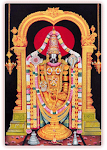JK Tyre & Industries is
Commercial vehicle tyres account for nearly two-thirds of the domestic tyre industry’s turnover and profits. In the past, the company suffered due to high capital cost followed by spiralling natural rubber prices.
This adversely affected its profitability and for a long time, JK Tyre was one of the least profitable tyre makers in the country. Rubber prices have now stabilised and the company has successfully hiked prices to pass on the increase in input costs to its customers.
Besides, it has been able to restrict its interest cost and depreciation allowances to historical levels, even as revenues and operating profit continue to grow. All this makes it an interesting turnaround story for longterm investors. To top it all, JK Tyre is currently one of the cheapest stocks in the tyre segment, with an attractive dividend yield of 2%.
BUSINESS:The flagship company of the Hari Shankar Singhania Group, JK Tyre markets tyres and tubes under the JK brand. The company pioneered the radial tyre technology in
The slow market response to bus/truck radial tyres hit JK Tyre hard as it had bet hundreds of crores on setting up
For nearly a decade ended September ’06, these two elements of fixed cost ate away the entire operating profit generated by the company, hardly leaving anything for shareholders. Now, however, there are strong indications that radialisation in the commercial vehicle segment is at a take-off point. It has already risen to 4% from 2% two years ago.
And being a pioneer in radial tyre technology, JK Tyre is likely to be one of the biggest gainers of this move. This is already visible in its financials. Its return on capital employed (RoCE) nearly tripled in the past three years to over 14% in FY07, and is expected to improve further this year.
The ratio of fixed cost to operating profit improved to 65% during the 12-month ended March ’08, against 116% in FY03. This translates into a stronger balance sheet and more sustainable finances.
In July ’07, the company raised capital from its promoters by way of a preferential issue to further improve its debt-to-equity ratio (DER).
It now plans to go in for a rights issue, which is expected to provide it additional capital to the tune of Rs 100 crore. This, coupled with its retained profits, is expected to improve the company’s DER to around 1.2-1.5 from nearly 2.5 during FY07.
GROWTH PLANS: In view of the increasing radialisation, JK Tyre now plans to invest Rs 480 crore to increase capacity of radial tyres.
Out of this, Rs 315 crore will be spent on augmenting its truck radial tyre capacity to 8 lakh tyres from the existing 3.67 lakh tyres, and another Rs 120 crore will be spent on increasing its off-the-road tyre capacity. The company also plans to invest in augmenting its captive power capacity.
Early last month, the company announced the acquisition of Mexicobased tyre company, Tornel, for Rs 270 crore. The acquisition, which is being done through a special purpose vehicle (SPV), will make it easier for JK Tyre to access the North American market and spare its domestic capacity to meet rising domestic demand.
Tornel is likely to be earnings per share (EPS)-accretive, as the acquisition cost is nearly half of the replacement cost of setting up a plant with similar capacity.
Spread over three locations, Tornel has a production capacity of 290 tonnes per day (tpd), against JK Tyre’s 650 tpd. In FY07, exports accounted for nearly 20% of the company’s revenues.
FINANCIALS:In the past three years, the company’s annualised net sales have recorded a compound annual growth rate (CAGR) of 15%, while net profit posted a CAGR of 40%.
During the same period, net profit zoomed to Rs 89 crore during the 12-months ended March ’08, against a loss of Rs 7 crore during the 12-months ended March ’05. Nearly two-thirds of the company’s profit growth was recorded in the past six quarters.
We expect the company to continue its growth momentum for at least the next few quarters, aided by price hikes and continued growth in the after-market for tyres. Early last month, the company, along with other tyre makers, hiked tyre prices by 5%.
VALUATIONS: At its current market price of around Rs 128 per share, the stock is trading at 4.5 times its EPS during the year ended March ’07.
In contrast, its peer, Apollo Tyres, is trading at a price-to-earnings (P/E) multiple of nearly 10, while MRF is trading at 8 times its EPS.
Assuming a modest 12-15% annual growth in revenues and continued improvement in operating margins, JK Tyre’s one-year forward P/E works out to around 2.5, which provides ample upside potential to investors with a horizon of 2-3 years. Besides, JK Tyre has the industry’s highest dividend yield of 2%, which will only improve as profits grow.


No comments:
Post a Comment